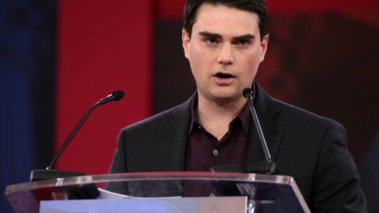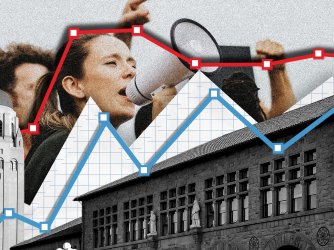Table of Contents
A “reflective” inquisition: LMU burdens Ben Shapiro lecture

Ben Shapiro speaking at the 2018 Conservative Political Action Conference (CPAC) in National Harbor, Maryland. (Gage Skidmore / Flickr.com)
Loyola Marymount University required a student chapter of the Young America’s Foundation to answer a list of invasive, leading questions to help determine whether the university would approve a talk by conservative commentator Ben Shapiro.
Although LMU is a private, Catholic university not required by the First Amendment to provide freedom of expression to its students, LMU maintains a strong commitment to freedom of expression in official policy. LMU expects its students to “respect the expressions of others, even when it makes them feel challenged or uncomfortable” and affirms “the right of the members of the University community to express and communicate alternative, contrary or unpopular positions and beliefs.”
But on Jan. 29, the national YAF organization wrote that LMU was requiring its YAF student chapter
to review the school’s Guiding Principles for Student Activities and Programming” and “respond to the reflective questions.” The YAF chapter’s responses will then determine, during the administrators’ review, whether Shapiro will be allowed to speak on campus.
In a subsequent statement announcing that LMU had “communicated” its approval of YAF’s invitation “earlier today,” LMU characterized the questions as “thoughtful developmental exercises” that “assist with event planning” and do not “predetermine” whether an event will be approved by the administration. LMU did not explain, and it remains unclear, whether answering these questions is required to host a speaker, nor whether approval for an event is based on the student group’s answers.
It is also unclear how the required questions could have “assist[ed] with event planning” in the first place. The questions are not objective inquiries into aspects of YAF’s compliance with reasonable university regulations regarding the time, place, manner, or logistics of its event. Rather, they are leading questions that strongly indicate the university expects a particular kind of response — a result that would restrict students’ expressive and associational freedoms if used as criteria to host an event on campus.
For instance, the question about how “event planners [will] ensure that the content of the program uplifts the worth and dignity of individuals” would subject free inquiry to both content-based and viewpoint-based “positive programming” constraints that burden vigorous denunciation and critique. And the question concerning how “multiple or differing points of view [would] be represented and presented during the program” presupposes that every event should inherently include alternative or dissenting views, which may be amenable to some organizations but would, in practice, require others to present views they oppose.
Further, asking how event planners would “ensure that the program does not create a negative . . . impact” on the community would require students to condition their expression on their own hazy predictions of whether their expression might be used as an excuse for the bad behavior of others on and off their campus.
LMU is free to pose questions like these to its students. That is a “more speech” response to expression that the university, or some of its constituents, view as offensive. LMU is likewise free to encourage students to answer questions that might facilitate the university in substantively explaining and defending the right to invite controversial speakers. But an institution dedicated to freedom of expression cannot burden expression by compelling explanations from students whose speech, or invited speaker, presents views at odds with the institution’s leadership or constituents. If LMU did so, it was wise to quickly back down in the face of criticism.
In the future, LMU can maintain its commitment to free speech and pose such questions only if it affirmatively states the questions are not required and that no disfavored answer or lack of an answer will impact its students’ expressive and associational freedoms. Or LMU may pose the same questions to all students (provided the questions serve some legitimate interest unrelated to discrimination on the basis of viewpoint) and clearly define who constitutes a “notable speaker,” as LMU contends Ben Shapiro’s prominence triggered the questions for YAF’s event.
Otherwise, students can reasonably conclude that the questions indicate that LMU demands their expression and association related to controversial topics and speakers be only that expression perceived to be in line with the university administration. Students will then be less likely to express competing viewpoints, creating an impermissible chilling effect on a campus dedicated to open inquiry.
Given that these interrogatories violate LMU’s strong commitment to freedom of expression, the university may want to instead promote a set of explicitly non-binding principles that it hopes its students will aspire to uphold. LMU has every right to aspire to a set of “guiding principles”; it just has no right to turn those principles into a chilling and potentially censorious inquisition.
Recent Articles
FIRE’s award-winning Newsdesk covers the free speech news you need to stay informed.


Stanford president and provost cheer free expression in open letter to incoming class

FIRE survey shows Judge Duncan shoutdown had ‘chilling effect’ on Stanford students
